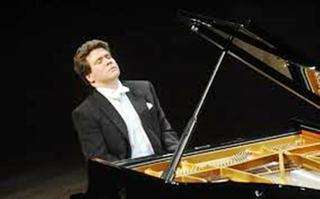|
Back
Strength Versus Substance New York
Isaac Stern Auditorium, Carnegie Hall
01/19/2018 -
Ludwig van Beethoven: Piano Sonatas No. 31 in A-flat Major, Opus 110, & No. 17 in D Minor, “The Tempest”, Opus 31, No. 2
Peter Ilyich Tchaikovsky: Piano Sonata in G Major (“Grand Sonata”), Opus 37
Denis Matsuev (Pianist)

D. Matsuev
Carnegie Hall audiences got two...no, three Denis Matsuevs for the price of one.
The second Matsuev played the rare Tchaikovsky “Grand Sonata” (the composer’s own cognomen) with a rip-roaring, uninhibited in-your-face dynamism. Those who hadn’t heard the only piano sonata acknowledged by Tchaikovsky himself (and this writer only heard it on YouTube, since it is never performed in New York) might have been astounded at the pure power of the piece. A deceiving power, but certainly effective.
The third Matsuev came, as expected, with the encores. Mr.Matsuev never plays less than four, and they run the gamut from mawkish to fiery to pure exhibitionist. Yet the audience loved it. As they might love a trapeze artist dangling, somersaulting and landing with elegant grace.
The shmaltz was Schumann’s Träumerei, coming after Tchaikovsky’s Schumannesque sonata, might have been appropriate. Matsuev instead justified the “dream” by going to sleep, his fingers dangling, his retards adoze. His Grieg Hall of the Mountain King was pure fun. Starting slowly at the bottom of the keyboard, zipping to the top. And his jazz encore–with fingers that would make Art Tatum or Oscar Peterson sound like all thumbs–got the most appreciative applause of all.
Beethoven be damned, the audience roared. This is what a keyboard is for.
The problem came from the two Beethoven sonatas, works which have more meaning in one measure than the full 30 minutes of the Tchaikovsky. Mr. Matsuev flipped the program over, playing “The Tempest” first. That was a wise choice since the Opus 110 Sonata had more meat, more inner guts.
The 17th Sonata should have been Beluga caviar for Mr. Matsuev’s sheer muscularity, his unrestrained pyrotechnics. Whether it was the odd hour for the concert (7 p.m.) or another problem, his fingers never rose to the occasion. His rhythms were offbeat, some of the passages were blurred, and one never quite caught the structure of the start. He got hold of himself in the second movement, with a firm touch. But in the finale, Mr. Matsuev offered a perpetual-motion movement which, was motion, was perpetual and made no attempt at meaning.
Beethoven’s 31st Sonata seems to be played by half the recitalists in New York this past year, and Mr. Matsuev was better than most. Better, that is, if one prefers an adroit, clean, proficient performance. Nothing unexpected, nothing out of place...
And none of the mystery, the poetry. Perhaps Beethoven himself played it this way, perhaps this was Mr. Matsuev’s answer to a too-personal passion. One waited, though, for that ultimate section from the penultimate sonata: that grand fugue. Mr. Matsuev didn’t miss a note, his phrasing was impeccable, it was a good Classical conception. And if one missed the older pianists…well, too bad. This was Matsuev’s Beethoven and he made a good show of it.
That Tchaikovsky Third Sonata, though, was the killer of the evening. The opening was masterly, even flashy. And Mr. Matsuev gave it all the flash needed, with enough energy to make up for the lackadaisical second subject. As the movement went, his strength was so superhuman that nobody had a chance to discover whether the creation had substance.
The second-movement variations (based on two notes) were time not to relax but to finally allow us to hear the music. It was stunning playing, Matsuev’s strength restrained, the emotional core of the work quite apparent.
Those wondrous hands took the short scherzo in stride. And when he got to the finale, one forgot whether this was “good” Tchaikovsky or not. This was the music Mr. Matsuev was waiting for.
The last two movements (which virtually quoted from the Fourth Symphony) were equally unparalleled. In turn bravura, lyrical, light, electrifying, the work gave Mr. Matsuev the chance to propel the piano to a grand finale.
No, this was not Beethoven. But Matsuev is neither Richter nor Brendel. He is his own man, and when given a chance to perform the Tasks of Hercules, he succeeds with the intensity and strength of a mythical hero.
Harry Rolnick
|